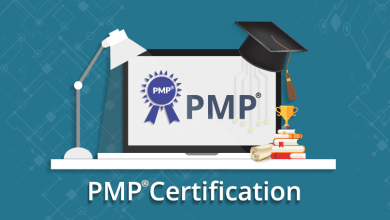
Preparing for Exams? Here’s How to Take Better Study Notes
The pandemic has triggered new ways of learning—educational institutions have moved to online classes to continue educating students. With the way things are going, it seems we are looking at learning from home as a long-term alternative to in-class lessons.
As with any learning method, e-learning presents its set of advantages and disadvantages. One benefit is that it requires you to be an active learner, providing you an opportunity to explore yourself, experiment with different learning methods, and reinforce essential skills like critical thinking and decision making. On the downside, that also means doing things mostly on your own, including preparing for the upcoming exams.
Better Study Strategies for Exam Week
Many of the steps in taking an online exam are like those they would take when preparing for an in-class test. Probably the only difference would be the online environment, which may warrant extra awareness and preparation. Whatever the case, preparing study notes and converting your documents from Word to PDF will be a great help. We’ll discuss that further in the article. First, let’s look into some exam preparation tips:
Prepare Ahead
Some students are guilty of last-minute cramming. But just because they thrive on it doesn’t mean it’s effective. Studies suggest that sacrificing sleep to study is often counterproductive—it can overwork the brain to the point of increasing feelings of anxiety, fatigue, and frustration. Avoid procrastinating and review your lecture notes frequently.
Plan Your Study Time
Preparing for the exams involves planning your schedule accordingly. Set aside regular time to study and adjust it accordingly as the exam week approaches to meet your needs. Plan your study sessions and make sure that you stick with them.
Create a Study Guide
Your teacher may provide a study guide. But creating one yourself will help you understand the lessons better. Take notes during classes to have something to refer to during your studies. You can also try different exercises and techniques to improve your memory retention. These include doing practice papers, drawing summary diagrams, or discussing previous lessons with your classmates.
Look for Clues
Most teachers have a style in preparing test questions, and they usually use the same methods every time. Look at past papers and watch for clues about possible test questions and formats. You can also take part in test review sessions and ask questions when something isn’t clear to you.
Stay Healthy
Taking breaks between revisions, eating a balanced diet, staying hydrated, exercising, and sleeping on time and for at least 7-9 hours is key to staying healthy. Avoid eating junk food or sugar before your exams—they can drain your energy levels quickly and affect your ability to focus.
How to Take Better Notes
Study guides provided by your instructions aren’t always comprehensive. They’re merely an outline of the key concepts to learn. It’s up to you to fill in the blanks with relevant information. Here are some tips to take better study notes.
- During classes, focus on the key points being discussed rather than translating them word-for-word. You can always fill in the gaps or define concepts while reviewing the notes at the end of each class.
- Jot down factual information including dates, names, etc., and revisit your notes to define or explain them later.
- Record your questions and take note of concepts that are confusing to you you want to follow up with your instructor later.
- Keep your notes clear, concise, and structured so they are easy to read and make sense to you later. You can use abbreviations, symbols, and bullets to keep them concise and brief.
- Experiment with different note-taking strategies and formats. Once you find what works best for you, stick with it so your notes are structured in the same way every time.
Where Converting Word to PDF Can Help In Your Exams
If you want to keep your notes organized and accessible across different devices without them taking too much of your storage, you can trust a PDF word converter to convert almost any file format into PDF.
PDFs are easy to create and are accessible to everyone. You can compress them into a file size that’s easy to exchange while retaining the original quality. What’s great about them is that they display the same content in the same layout, regardless of where you’re viewing them.
Plus, it allows you to integrate different types of rich content like images, graphics, even videos, audio files, buttons, and hyperlinks. It means you can include links to your recorded lessons for easier recall. On top of it all, PDF allows you to set up different levels of access to secure the content, such as view-only access or editing access.
If you’re ready to explore the advantages of using PDF for your notes, check out PDFBear, a free online PDF converter, to get started.





